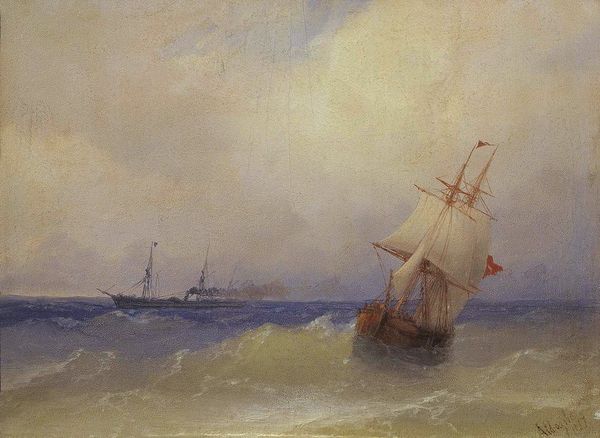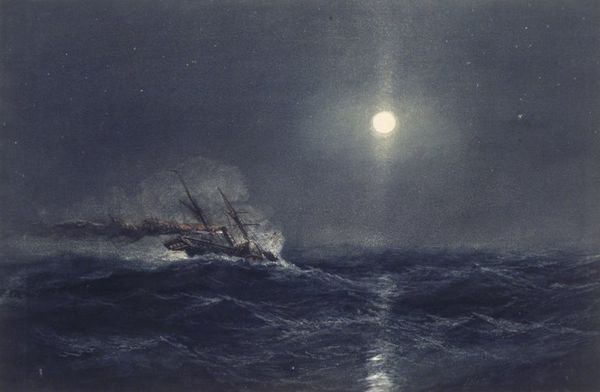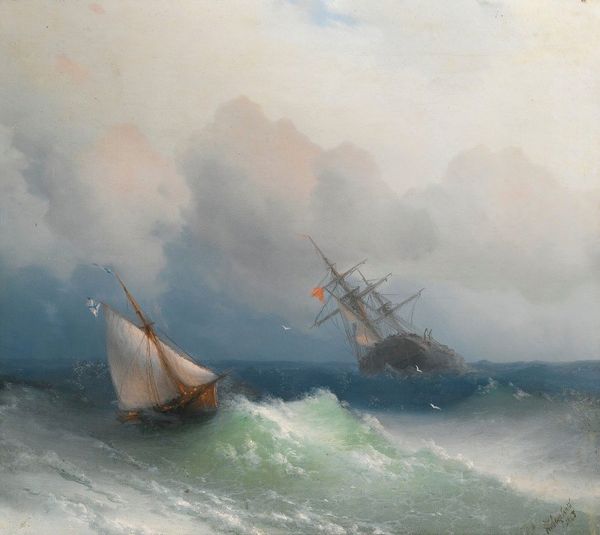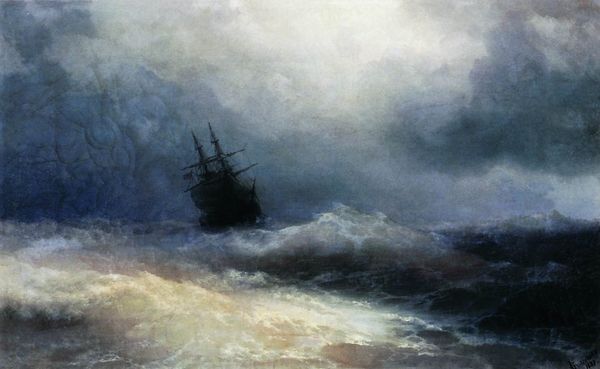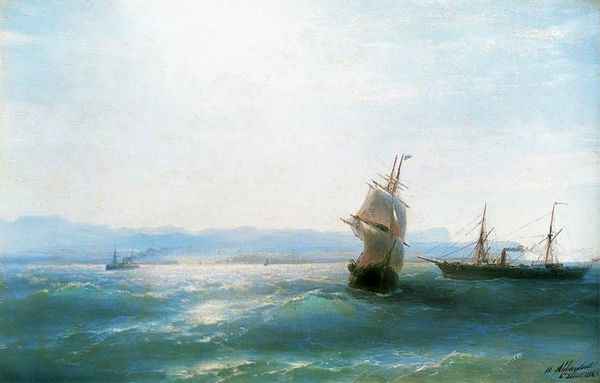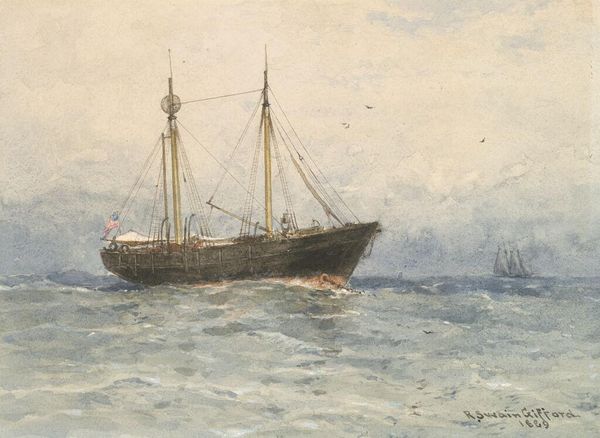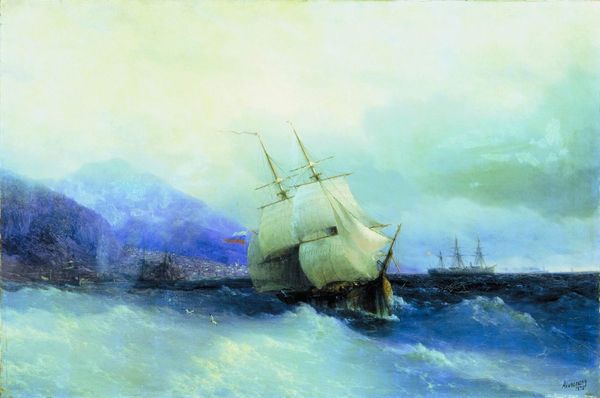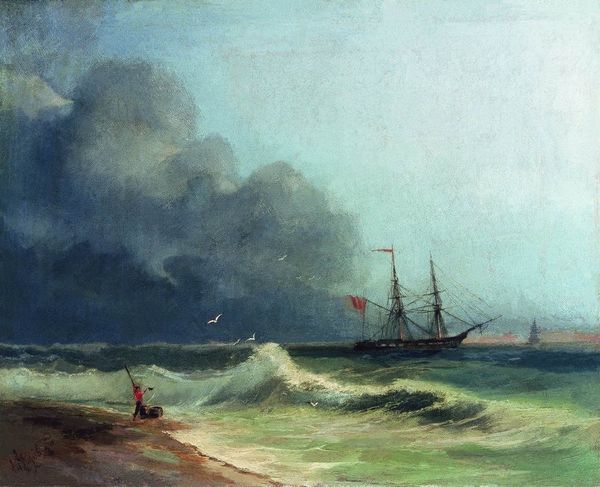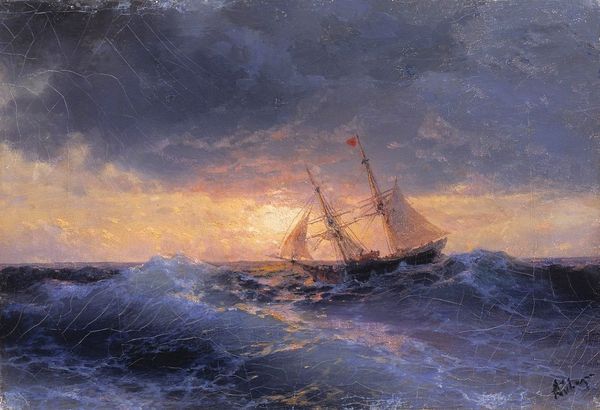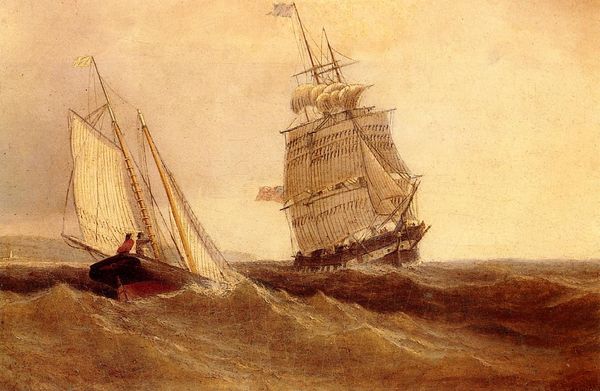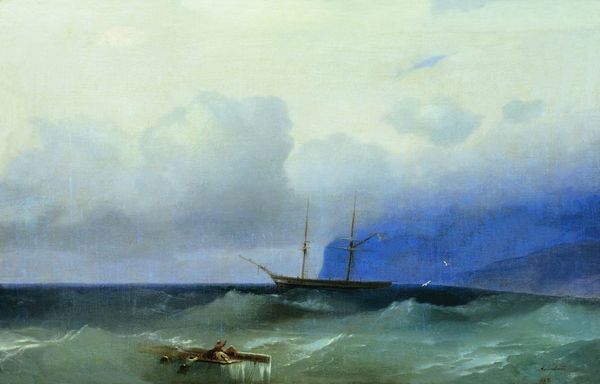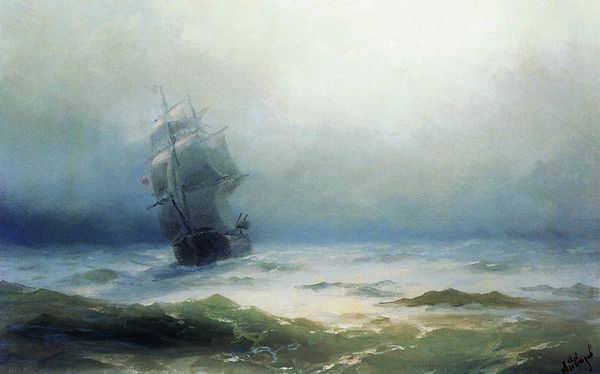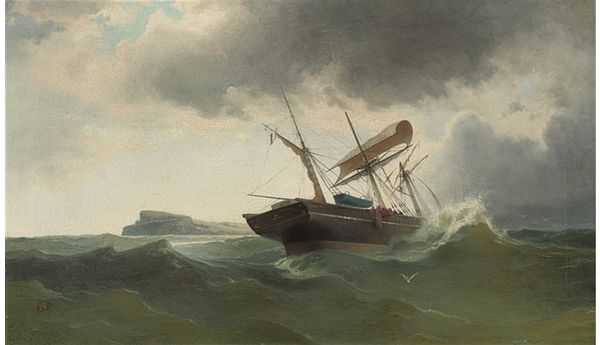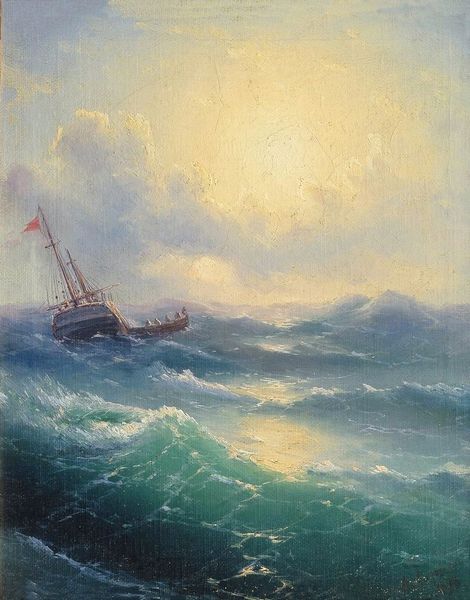
Copyright: Public domain
Curator: This is Ivan Aivazovsky's "The Shipwreck," painted in 1894 using watercolor techniques. What are your initial impressions? Editor: Overwhelming. I feel a surge of anxiety just looking at it; the power of the ocean and the fragility of human endeavor are laid bare. Curator: Precisely. Notice how Aivazovsky uses color. The cool blues and greens, with their varying intensities, articulate depth and convey movement. It's almost as if the brushstrokes themselves become the waves, don't you think? Editor: Absolutely, but this goes beyond formal mastery. Think about the historical context: the late 19th century saw rapid industrial expansion and maritime trade. Shipwrecks weren't abstract concepts; they represented real loss, class disparities, and ecological disaster. I wonder how this artwork reflects these anxieties. Curator: The dramatic composition—the high horizon line, the diagonal thrust of the sinking ship—contributes to a strong emotional impact. Consider how the relatively small figures cling to the wreckage, dwarfed by the immensity of the sea. Editor: The almost photographic realism emphasizes the desperate struggle for survival and begs us to remember those whose lives and labor depended on seafaring. I think about the untold stories and exploited bodies—the human cost of such maritime events, especially given Russia’s ambition to compete in the colonial landscape. Curator: Yet there's a sublime quality as well, a sense of awe at nature's untamable force. It reminds us of Romanticism's focus on both beauty and terror. Note how light breaks through the heavy sky. Editor: But whose light? I think about empire. About trade. About whether this sublimity actually obscures the brutal economics of it all. Who owns the ship, and who dies with it? Curator: Ultimately, Aivazovsky presents us with a compelling scene of human vulnerability against the backdrop of nature’s grandeur, using watercolor to heighten the drama. Editor: Yes, and that technical mastery also amplifies a dialogue about the historical realities of that era, creating space to reconsider maritime disasters and the global systems that led to them.
Comments
No comments
Be the first to comment and join the conversation on the ultimate creative platform.
